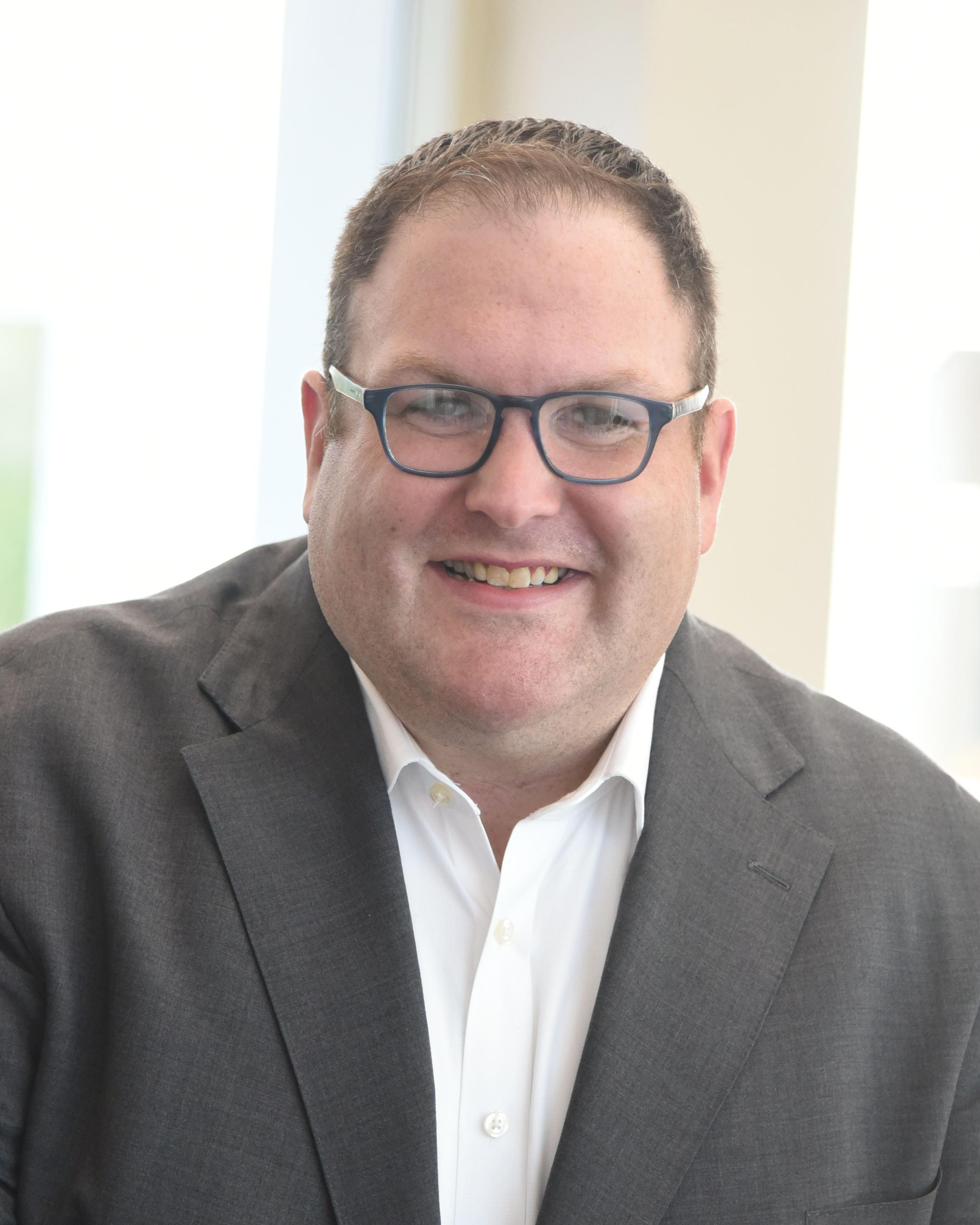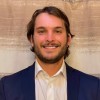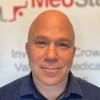GFR90 : Wearable Artificial Kidney
by Norm Tiffin
We have developed and are beginning to commercialize a wearable artificial kidney for ambulatory dialysis.
Komoka, ON Canada Medical Device Equity Raise 2021 Vision challenge 2021 Vision challenge
About our project

The problem we solve: Current hemo-dialysis is performed three times a week. This intermittency - contrary to the healthy kidney - allows accumulation of fluids, toxins and an imbalance in electrolytes between clinic visits. These increases beyond physiological norms and the sudden decreases during dialysis creates three problems: 1) Poor medical outcomes, 2) mental health issues and 3) very poor quality of life.

About our solution: By providing continuous or near-continuous dialysis like a healthy kidney our solution can attenuate the issues above. Moreover, we will reduce the cost of dialysis by alleviating strain on dialysis clinic visits. Our first (of two) prototypes is shown but covered to conceal our technology.
Progress to date:
GFR90 has an MVP (second prototype) which was to enter our first clinical trial the week COVID hit in Ontario. We have just been (Oct 2020) approved to start them up again and will have results by Christmas.
Our bench studies have proven the ability of fluid and toxin removal using human blood, validated the safety features and been approved by Western University for clinical trials.
The response has been outstanding as even the layperson can quickly and easilty grasp the significance of ambulatory dialysis despite not knowing the full story. We are to be featured in a local business magazine in October and a very large radio network in the US (Business Talk Radio) asked us to do an 8 minute segment which was rated a 9.5/10 and lit up the phone lines and emails. They have asked us back for a 30 minute segment this month (Oct 2020).
In an informal survey of key nephrologisits in Canada the response was outstanding with estimates of application up to 1/3 of the dialysis patients today.
In the US in 2012 the FDA recognized the harm being done by hemo-dialysis and announced a fast track program for solutions. In addition, last year the White House issued a presidential order that encouraged a solution. The second of three goals was to have 85% of new dialysis patients dialyzed at home by 2025. We have that solution.
About Our Team

Creator: Norm Tiffin
Location: Ontario
Education: Central Michigan University - Master of Scien
Bio: Started career as Respiratory Therapist and got involved in research part time then full time. Some of my research was on medical devices (most was critical care) and I was attracted into business starting as a manager for home care then working my way into medical device companies as Director of Sales then NA Marketing Manager for Fortune 200 healthcare division. Moved into VP for global medical device company in US, then came back to Canada and did some consulting, stints as VP of Marketing for a healthcare consulting firm and another as provider. Introduced 12 medical devices to market (national and global) in one capacity or another, started two companies, consulted on med dev, published in medical literature 125 times, editor for medical journal, 4 patents, written textbook used in Canada, US and Saudi Arabia. I was invited to join this venture to commercialize it four years ago and we are ready to do just that.
Hospital Affiliation: London Health Sciences Centre (formerly)
Title: President & Managing Parter
Advanced Degree(s): Master of Science in Administration (Healthcare)
About Team Members
Don Bilyea
CEO, BA
Biography: Mr. Bilyea brings a wealth of leadership in Canadian and International business experience to GFR90. His initial career path as a Funeral Director not only provided a working knowledge of the human anatomy it also brought home the reality of human tragedy and health care limitations.
His own Personality Profile was a driving force at a young age to explore the wonders and opportunities of “what could be made possible”.
Mr. Bilyea started his own Financial Corporation in the 80’s as a pioneer of the concept – Work for the Client not the company. Their company philosophy of “Our Independence – Your Opportunity” proved a winning combination and is the goal of most successful Financial Service providers today.
Mr. Bilyea is a proven true entrepreneur with ventures into companies and equipment with a proven pedigree but which lacks markets and innovative marketing skills. One such company uses the science of Magneto Hydro Dynamics for the non-chemical treatment and conditioning of water.
Another on going project is the use of Boundary Air/Laminar Flow Technology. The BA/LF system creates a cushion of air surrounding a product for conveyance. This eliminates friction, drag, reducing product degradation and saves energy in a near zero gravity field.
Mr. Bilyea’ s skills as a seasoned orator, negotiator and relationship builder will prove valuable as we move forward within GFR90.
He has been an active member of several boards, both public and private, and is currently the president of two corporations and the secretary/treasurer of a third.
Title: CEO
Advanced Degree(s): BA
Gord Campbell
Development Team Lead, PhD Mechanical Engineering
Biography: Dr. Campbell is a Biomedical Engineer, Clinical Engineer, Biomedical Scientist and Materials Scientist with expertise that spans research-teaching hospitals, medical device manufacturing and research. His research has included devising over 300 medical device technologies. He holds a bachelor and master degrees in Mechanical Engineering (manufacturing) and Doctorate in Medical Biophysics (Faculty of Medicine) the University of Western Ontario.
Recently he retired as a Senior Research Officer Medical Devices and previously Group Leader Solid Shaping Processes at the National Research Council of Canada (NRC). He holds Adjunct Research Professor appointments in the Faculty of Medicine (Medical Biophysics), University of Western Ontario as well as Associate Scientist, Robarts Research Institute. He was named Outstanding Canadian Biomedical Engineer by the Canadian Medical and Biological Engineering Society among other recognitions.
Dr. Campbell holds 6 patents, has 160 publications as well as more than 100 presentations at professional seminars/workshops/symposia.
Title: Development Team Lead
Advanced Degree(s): PhD Mechanical Engineering
Robert Lindsay
Development Team Medical Director, MB, ChB, MD
Biography: Dr. ROBERT LINDSAY graduated in Medicine ( MB, ChB with commendation) in 1965 from Glasgow University, U.K. He completed internal medicine and nephrology training at Glasgow Royal Infirmary and Glasgow University. He was recruited by Western University, emigrated to Canada, and was appointed Assistant Professor in the Faculty of Medicine in 1974. He was promoted to Professor in 1983.
His major research focus has been on renal failure and its treatment by dialysis. His studies, laboratory to clinically based, have included the search for uremic toxins, blood –foreign surface interactions , bio-sensors in dialysis as well as conducting clinical trials. In recent years he has been particularly interested in dialysis treatment adequacy with aim of improving the outcomes of patients with end stage kidney failure. He was one of the pioneers in the development of more intensive forms of hemodialysis exploring the boundaries of frequency and time of treatment delivery.
His research funding has exceeded $15 million and he has published over 300 papers and book chapters. In recognition of his work he was awarded the Kidney Foundation of Canada Medal of Excellence in Research in 2006 and the Belding Scribner Award from the International Society for Hemodialysis in 2015. The “Robert Lindsay Chair in Hemodialysis Research and Innovation” has recently been created to ensure the future of this important research area at Western University.
Title: Development Team Medical Director
Advanced Degree(s): MB, ChB, MD
About Our Company

GFR90 Inc
Location: 22551 Jury Road
Komoka, ON 123456
CA
Founded: 2020
Website: https://www.gfr90.com
Product Stage: Prototype/MVP
Employees: 1-2
How We Help Patients
Current dialysis patients have three main issues which derive from the intermittency of three-a-week dialysis sessions. We solve four issues: 1. Medical Outcomes. High blood pressure from near constant fluid overload can lead to heart failure but there are other medical issues which have to be managed because of toxin and fluid accumulation. Continuous or near continuous dialysis which the GFR90 wearable artificial kidney provides will reduce or potentially eliminate these issues. 2. Mental Health. Depression is common in this patient population because, as one patient advocacy website puts it, they are constantly considering their physical survival. 3. Quality of Life. Patient's lives are consumed by scheduled visits and the constant feeling of nausea, lethargy, poor appetite and malaise because of fluid and toxin accumulation. There are only small windows of "normalacy" after dialysis. 4. Cost. We will lower the cost of dialysis with a home-worn solution.
How We Help Physicians
The wearable artificial kidney is the essence of "better care" for dialysis patients. Our device addresses the medical, mental and social issues which are created by intermittent dialysis. We believe that mimicking the kidney's function continuously or near-continuously can alleviate many of these issues which dialysis care providers deal with daily in their practice. Issues such as: 1. The physiological sequelae from fluid and toxin accumulation between visits. These medical outcomes can be largely alleviated through attenuation of the peaks and valleys of fluid and toxin levels provided by continuous dialysis - like a healthy kidney - particularly the reduction of hypertension and cardiac failure from fluid overload. 2. Depression and mental health issues of dialysis patients. Providing the means for a more normal life we believe will go a long way toward assisting dialysis patients maintain better mental health. Additionally, reducing family stress from scheduling clinic visits will be a advantage to their social situation by reducing intrusion to normal family life. 3. Reduction in the degradation of Quality of Life Issues such as the potential alleviation of symptoms of nausea, lethargy, appetite-loss and others.
How We Help Hospitals
1. In Canada, dialysis clinics are a part of an healthcare institution and fall under their budget. As such, they are a cost to the system. Given that our wearable artificial kidney will be able to reduce the number of visits to a clinic (we are unsure of how many at this point) it is likely that the institution can reduce costs. "Extra" costs to the system include those patients who must 2. In the US, clinics are often also free standing, independently owned and make profit from clinic visits. Hospitals and clinics bill from DRG codes which are specific to condition treatments, such as dialysis for renal failure. These clinics will be able to profit from the provision of home services to home dialysis patients to expand their treatment options and receive new revenues.
How We Help Partners
Unfortunately, we are not in a position to extend our knowledge or expertise to others at this time. We look forward to the time when we can.
Innovation Details
Intellectual Property Summary
We have submitted 4 patents with over 80 claims based on (1) the technology of extracting fluids and toxins which is in our current device and the process of the third function which will be in our second phase device, i.e., electrolyte balance and (2) the wearable vest. We have been developing this for 5 years and have kept the project secret until about 6 months ago to protect our ideas. We performed a prior art search and are optimistic with the claims we have made.
Clinical Information
We have been approved to re-start our first clinical trial which we expect will be completed by the end of November. It was scheduled to begin just as COVID lockdowns hit. We have IRB approval for 20 patients for 4 hours each from Western University which will provide confirmation of our blood studies and give us some user and clinician feedback. Outcomes will be based more on safety than efficiacy but we will measure some performance data. The study will be held in the dialysis clinic which is run by one of our founders, a nephrologist who has published over 250 studies, most of them clinical studies in dialysis.
Regulatory Status
We have not yet started talks with FDA or Health Canada about their requirements and our experience with them does not allow us to harbour any misconceptions about these paths. However, we know that in 2012 the FDA had announced a fast track program for any solution that addresses the issues with hemo-dialysis, which are well known. This program remains in place and we intend to leverage it as much as possible. In addition, the White House delivered an executive order last year stating that they will support any solution for hemo-dialysis, laying out a high level road map for incenting the market. We believe this will provide tailwind for our application.
Our plan is to connect with an FDA/Health Canada consulting agency. We do not have in-house expertise and know that it is foolish to submit without counsel.
How we will use the funds raised
We have written an entire business plan which includes detailed financial forecasts. However, we also know the only certain thing about these forecasts is that they are wrong. Somewhere.
Nevertheless, we anticipate that the first year of operation will cost $1.4 million USD to build out the organization to further develop the product and improve efficiency, safety, performance, etc. in addition to engineering toward a production model. This is what we are asking.
Our business plan has two phases. The first is to produce a wearable device that performs fluid and toxin reduction. This is anticipated to be on the market in 2.5 years from funding. The second product, in year three, includes electrolyte balance.
The first year's funding will be for hiring technical expertise, lab space, regulatory, and support services which will be internal and external (consulting). Some marketing will be included such as conference exhibiting. The second year of operation calls for $5.9 million USD and the third year - where sales begin - $4.1 million USD.
A detailed account of expenditures is available.
Thank You
Our team is excited to see the results of our work over the past five years become a solution to the issues of today's dialysis. These issues are so severe that we know of some renal failure patients who have weighed them against refusing dialysis (leading to death) and have chosen the latter. We have the solution to address these problems and make dialysis a more forgiving therapy - medically, mentally, socially and financially.
We have had offers of $250,000 "for the first one" because they are experiencing the effects of current dialysis therapy and want a solution now. Of course, we can't promise that but such is the desperation of those undergoing current dialysis.
Join us. Support us in any manner you are able. Although we fully anticipate that this project will be financially very successful for everyone involved we are looking for partners who also value the humanitarian vision that it provides. First for North America, then for the rest of the world.
The need is great and we are committed to bringing this solution. Help us with your vote.
Investor Info
Market Size
There are 750,000 dialysis patients in the USA and 50,000 in Canada for a total market of 800,000. Our market research has indicated that our wearable artificial kidney will be a viable solution for somewhere between 10% and 30% of these patients in the first phase alone. The total spend on dialysis in NA is $61 billion USD which is generally considered to be half of the world's market. The average spend from Medicare is almost $90,000 USD annually per patient.
Therefore we have an addressable market of between $6 billion and $18 billion USD in North America for our first phase product (fluid and toxin reduction) which will be the only one of it's kind on the market.
Projected 3 Year Growth
Halfway through our third year of operation will be the first year of sales. The market will be primed for our entry and yield sales of 3000 units (2.5% of addressable NA market at 15% total market) for a total revenue of $55.9 million USD and gross margin of 62.7% based on a penetration pricing strategy. Given there are approximately 6,700 dialysis clinics in NA this amounts to less than one sale per two clinics.
Year two, three and four of sales are anticipated to produce revenues of $111.8 million, $789.9 million and $1,244.4 million USD, respectively reaching 40,000 units in total for a market penetration of 5% of total market and 33% of the addressable market using a conservative value. These estimates do not factor in the 5% of new patients annually, reduction in cost of goods, or price increases and estimate less than one cartridge per day and only one vest per year - leading to a conservative estimate.
Revenue Model
The wearable artificial kidney is a razor/razor blade model with the vest as an annual cost (perhaps with one backup) and a "cartridge" as a daily or each use consumable. We anticipate that a vest will need to be purchased annually and a cartride will be used daily or perhaps more. Each time blood is introduced into the cartridge it requires a new cartridge. Even after just a few minutes of a no-flow condition blood will begin to coagulate and the cartridge must be replaced.
Although remain focused on North America, in future, we believe that our patents may allow for the possibility to license competitors the technology to create their own wearable artificial kidneys, thus "franchising" the technology to other countries and distributors. This remains to be determined, however, and is not part of the current business plan.
Competitors
Blood Purification Technologies, from the University of California San Francisco, have been working on a miniaturization of a full dialysis machine for 16 years. They have recently trialed seven patients and, despite technical problems with their device, proved that a wearable device for dialysis is tolerated. Their device is a miniaturized version of a full dialysis machine and although wearable this group had developed no new breakthroughs that would support miniaturization. Currently, they are underfunded and have not resumed development since their clinical trial in 2015. They anticipate that their product will be commercialized three years from new funding. However, they have made no announcements for commercialization plans nor is it apparent that they have developed a business team or plan. They have no website. The last update on their clinical trials was 2017 at www.clinicaltrials.gov. Our experience with other medical device innovators which have tried to miniaturize current technology is not encouraging. It is much better to find new technology which is smaller and which provides the same outcomes. This is GFR90s approach.
A second indirect competitor is QIDNI in Kitchener, Canada who are developing an implantable artificial kidney. This is an ambitious project which we fully support as a long term solution for a very limited portion of the population. It is our understanding that they are at least a decade away from an implantable device given the complexity of their solution. Their technology is not yet well established as viable to our knowledge then there is the issue of miniaturization and implantation.
Traction
There has been much interest shown in our wearable artificial kidney ove the past 6 months of allowing public access to what we are doing.
1. Business Talk Radio asked us for an 8 minute segment which produced an "overwhelming" response from their listeners with phone calls and emails "pouring in". We have been asked to do three more 30 minute segments which will grant us the opportunity to expand our mailing list and direct people to a crowdfunding site.
2. Our local city business magazine just published their October issue which featured an article about GRF90. www.londonincmagazine.ca
3. A survey of nephrologists across Canada has reinforced our target market and sales projections. They will become our ambassadors.
4. We have had the opportunity to introduce the project in the Middle East where enthusiasm was very high. We have nephrologists who have written their support for the project and individuals who have offered to buy the first device for excessive prices.
5. The market is not only prepared buy yearning for our solution. Issues with current dialysis therapy are well known.
i) In 2012, the US FDA issued its End-Stage Renal Disease Challenge which was created to encourage development of innovative devices that addressed kidney failure. This challenge has ignited some development but to date has met with limited commercial introductions. We will be the first.
ii) Also in 2012, the US FDA announced that device solutions to current dialysis will receive a fast track to approval.
iii) In 2019, the White House issued a Presidential Order which addressed the problems with current dialysis. They are encouraging development of solutions and one of their goals is to provide 80% of new dialysis patients with home dialysis. Again, we have that solution.
Due Diligence Docs
Please note that access to the company's confidential materials is limited. Click this button to request access from the Company and its representatives.
Supporters
-
 , Master of Science in Medical Chemistry
, Master of Science in Medical Chemistry
12/21/2020 - Liked the project.
10/24/2020 - Interested in investing in the project.
10/23/2020 - Liked the project.
10/21/2020 - Liked the project.
10/21/2020 - Followed the project. 7Medstartr
7Medstartr
Index Score7
Interest
Score0
Adoption
Score-
This campaign has ended but you can still get involved.See options below.
$ 1,400,000 goal
Instant Feedback
Help us find best new ideas to fund by telling us what you think. Your feedback goes straight to the team behind this project in private, so tell them what you really think.
Important Disclosure: MedStartr.com is a website owned and operated by MedStartr, Inc., which is not a broker-dealer, funding portal or investment advisor; and neither the website nor MedStartr, Inc. participate in the offer or sale of securities. All securities related activity is conducted through Young America Capital, LLC, a registered broker-dealer and member of FINRA/SIPC. No communication, through this website, email or in any other medium, should be construed as a recommendation for any securities offering.


